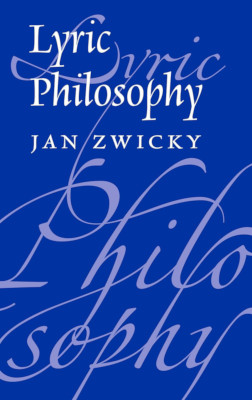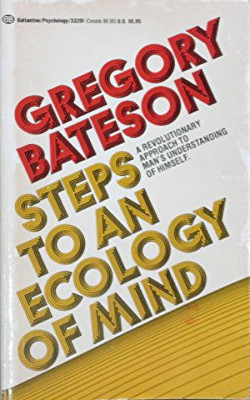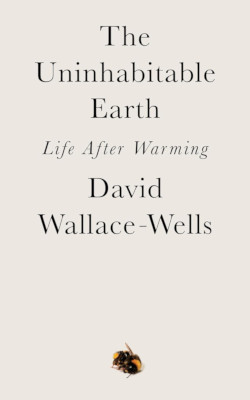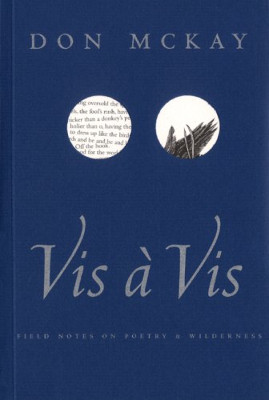S
tarting about 2000, around the time the Living World entered the Pandoracene as here defined, a remarkable succession of books and online resources began to appear – works of a kind and calibre rarely seen, at least by me, in the Time Before. Since then these books and links have piled up around the attentive Gaianist like a slow paradigm-shifting flurry of snow.
The sheer quantity of reflection and quality of scholarship that has gone into the writing of these books is, taken together, staggering. To me it seems important to acknowledge my enormous debt of gratitude to the authors of the books and links listed below.
Welcome to the Pandoracene
- Hansen, James. 2009. Storms of my grandchildren. Bloomsbury, New York. 319 pages.
- Kingsnorth, Paul & Dougald Hine. 2009. Uncivilization. https://dark-mountain.net/about/manifesto/
- Klein, Naomi. 2014. This changes everything. Penguin Random House, Toronto. 566 pages.
- Kolbert, Elizabeth. 2014. The sixth extinction. Henry Holt, New York. 319 pages.
- Scranton, Roy. 2015. Learning to die in the Anthropocene. City Lights Books, San Francisco. 142 pages.
- Wallace-Wells, David. 2019. The uninhabitable Earth. Random House LLC, New York. 310 pages.
How Did We Get Here?
- Harari, Yuval Noah. 2014. Sapiens. Signal Books. 443 pages. [Brilliant deconstruction, best read in conjunction with Wallace-Wells, above]
- Tarnas, Richard. 1991. The passion of the western mind. Ballantine Books, New York. 544 pages. [Magisterial, somewhat marred in the final pages by cosmological speculation]
Constraints on Human Understanding
- Abram, David. 1996/1997. The spell of the sensuous. Vintage Books, New York. 326 pages.
- Ghosh, Amatav. 2017. The great derangement. University of Chicago Press, Chicago. 196 pages.
- McGilchrist, Iain. 2009. The master and his emissary. Yale University Press, New Haven. 534 pages. [Part One is required reading, Part Two is optional]
- Rowlands, Mark. 2008. The philosopher and the Wolf. Granta Publications. 246 pages.
Paradigm Shift
- Bateson, Gregory. 1972/2000. Steps to an ecology of mind. University of Chicago Press, Chicago. 533 pages.
- Capra, Fritjof & Pier Luigi Luisi. 2014. The systems view of life. Cambridge University Press, Cambridge. 498 pages.
- Fleming, David. 2016. Lean logic. Chelsea Green Publishing, Vermont. 623 pages.
- Kohák, Erazim. 2000. The green halo: a bird’s-eye view of ecological ethics. Open Court, Chicago, Illinois. 211 pages. [a primer to Gaian ways]
- Lent, Jeremy. 2017. The patterning instinct. Prometheus Books, New York. 569 pages.
- Lovelock, James. 1979/2000. Gaia. Oxford University Press, Oxford. 148 pages.
- Maturana, Humberto R. & Francisco J. Varela. 1987/1992. The tree of knowledge: the biological roots of human understanding. Shambhala Publications, Inc., Massachusetts. 269 pages.
- Weber, Andreas. 2013. Enlivenment. (autor-andreas-weber.de/downloads/Intro_Enlivenment_en.pdf). [a Gaian manifesto]
- Weber, Andreas. 2016. The biology of wonder. New Society Publishers, British Columbia. 367 pages. [popular version of Weber 2013]
- Weber, Andreas. 2019. Enlivenment – toward a poetics for the Anthropocene. The MIT Press. Cambridge, Massachusetts. 195 pages. [a Gaian manifesto in flowing philosophical dress]
Earthly Literacy
- Bryson, Bill. 2003/2004. A short history of nearly everything. Anchor Canada. Toronto. 554 pages.
- Harding, Stephan. 2006/2013. Animate Earth. Green Books, Cambridge. 286 pages.
- Dawkins, Richard. 2004. The ancestor’s tale. Orion Books Ltd., London. 685 pages.
- Shapiro, James A. 2011. Evolution. FT Press, New Jersey. 239 pages.
- Sheldrake, Merlin. 2019. Entangled life. Random House, New York. 352 pages.
- Wilson, Edward O. 2006. The creation. W.W. Norton & Company, New York. 175 pages.
- Yong, Ed. 2016. I contain multitudes. HarperCollins, New York. 355 pages.
- Yong, Ed. 2022. An immense world. Penguin Random House, UK. 449 pages.
Toward Gaia
- Abram, David. 2010. Becoming animal. Vintage Books, New York. 315 pages.
- Bateson, Gregory. 1979/2002. Mind and Nature. Hampton Press, New Jersey. 219 pages.
- Bateson, Gregory & Mary Catherine Bateson. 1997/1998. Angels Fear. Bantam Books, New York. 224 pages.
- Bringhurst, Robert. 2006. The tree of meaning. Gaspereau Press, Kentville, Nova Scotia. 329 pages.
- Bringhurst, Robert. 2007. Everywhere being is dancing. Gaspereau Press, Kentville, Nova Scotia. 345 pages.
- de Waal, Frans. 2016. Are we smart enough to know how smart animals are? W.W. Norton & Company. 338 pages.
- Hoffmeyer, Jesper. 2005/2008. Biosemiotics. University of Scranton Press. 419 pages.
- Kauffman, Stuart. 2008. Reinventing the sacred. Basic Books, New York. 320 pages.
- Latour, Bruno. 2017. Facing Gaia. Polity Press, Medford, Massachusetts. 327 pages.
- McKay, Don. 2001. Vis à Vis: Field notes on poetry & wilderness. Gaspereau Press, Kentville, Nova Scotia. 112 pages.
- McKay, Don. 2012. The shell of the tortoise: four essays and an assemblage. Gaspereau Press, Kentville, Nova Scotia. 149 pages.
- Margulis, Lynn & Dorion Sagan. 2007. Dazzle gradually. Chelsea Green Publishing, White River Junction, Vermont. 259 pages.
- Midgley, Mary. 2001. Gaia. Demos, London. 52 pages.
- Shaviro, Steven. 2009. Without Criteria. MIT Press, Cambridge, Massachusetts. 173 pages. [Gaian metaphysics?]
- Zwicky, Jan. 2014. Lyric Philosophy. 2nd revised edition. Brush Education, Edmonton. 861 pages.












